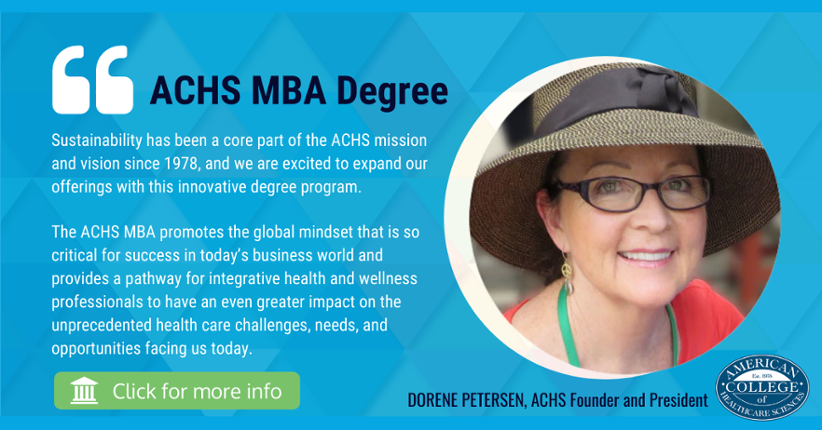Or What To Do When Your Unaccredited School Closes To Avoid Getting Burned AGAIN!!
Editor's Note: This post was originally published on November 28, 2012, and was updated in May 2016.
The surprise closure of the Global College of Natural Medicine (GCNM) in November 2012 highlighted why legitimate accreditation is so important to students selecting a school. It is, of course, upsetting and disruptive to students and to the industry when any institution shuts down. But it gets worse: I know of several students who had enrolled at GCNM after Clayton College of Natural Health (CCNH) closed down without warning in 2010 without issuing refunds. These students literally jumped from the frying pan to the fire. How can you ensure you make a smart choice?
There are simple things you can do to check whether a school is properly accredited (Need a refresher on what accreditation standards are? That will be covered in the third blog in this series!):
-
Take claims to be accredited with a grain of salt. Yes, people can just make things up. Shocking but true. It doesn’t make it true if its in a catalog or on a website. Frankly, the time folks spend making things up, creating fake websites, and other nefarious activities could be far better spent getting accredited by a legitimate accreditor! Accreditation is a lot of work but the outcome is a better learning experience for every student.
-
A legitimate accrediting body MUST be approved by the US Department of Education or the Council on Higher Education Accreditation (CHEA) OR BOTH (preferably!!!!)
-
Industry bodies add all sorts of value, but they cannot set themselves up as accrediting bodies and “accredit” schools.
-
Accreditation cannot be shared. For example, if an accredited institution accepts training at an unaccredited institution as continuing education, that doesn’t mean the unaccredited institution is somehow sharing the accreditation and becoming, by association, accredited too! Confusing! Yes it sure is. Some of these folks create very complicated and confusing explanations! A simple black and white question (Are you accredited?) turns into fifty shades of gray! They hope you won’t ask the difficult questions.
-
How do you find out if an accrediting body is approved? It is so easy: Both organizations have websites that you can check:
For example: ACHS has been accredited since June 2003 by the Distance Education Accrediting Commission (DEAC) (formerly the Accrediting Commission of the Distance Education Training Council (DETC)). Click here to verify our stats on the DEAC website. DEAC is recognized by both the U.S. Department of Education and the Council for Higher Education Accreditation (CHEA) as an accrediting body.
-
Ask to see a College's Teach Out Commitment. Accrediting agencies require Officers of the Institution to personally guarantee teach out of students should the Institution close. If the Institution collects tuition for future semesters (which ACHS does not), ask how unused tuition is set aside. Is there a reserve account for this purpose? You don’t want to have to pay twice for your education.
-
Look at offers to transfer your unaccredited credits suspiciously. Nearly every accreditation agency requires accredited institutions to transfer credits only from another accredited College. Keep in mind that there is no guarantee of transfer even from another accredited College. Click here for a list of Institutions that have accepted ACHS's credits. After all, you’ll be graduating with their diploma and they want to make sure you know your stuff!!! One legitimate option: An accredited school may offer opportunities to take challenge exams to earn credits, meaning there may be a way to convert what you’ve learned into College credit! In addition, some schools in some states can accept “lifetime learning” or “independent study” for credit. Again, some unaccredited schools use this loophole to somehow imply that they are accredited or legitimate.
-
Look at discounts offered to you. Most accrediting and state agencies require schools charge all students the same tuition (legitimate scholarships are ok). Why is a school using a steak knives fire sale approach anyway? There’s a red flag.
-
Contact graduates of the school. Most schools offer graduates you can talk to. Rather than relying on “reviews” from unidentified strangers on the web (who may very well be from staff or students unaccredited diploma mills themselves) talk to actual graduates.
-
Talk to the accrediting agencies: Have there been complaints against the school? Any show cause actions? While these can sometimes happen to the best schools, ask the school what’s been changed to address any issues raised by accreditation visits.
Homework
Yes I know this is a blog, and blogs don’t usually have homework, but hey, I’m a teacher too and I can’t help myself...
Your homework today is to go and do this:
-
Click on the links and go check where ACHS is listed as accredited by DEAC, and where DEAC is listed by CHEA and the USDOE – Don’t take my word for it!!!
-
Now do the same for at least two other schools that you’ve received information from.
-
Now check to see where you can find these “Accrediting Agencies” on the CHEA and USDOE website: American Association of Drugless Practitioners & American Naturopathic Medical Accreditation Board
-
Visit some unaccredited schools and see the creative ways they tell you they are accredited by a bogus body or are not accredited. Some even try to tell you that this is somehow a good thing. You might be fooled into thinking these schools are teaching creative writing...
- Click here for a great video from The Leading Edge and DEAC on the importance of accreditation.
Let us know what you find in the comments section below!
Editors Note: This blog post was originally published in November 2012 and was last updated 2-7-16 for accuracy and comprehensiveness.
About the Author: ACHS CIO Erika Yigzaw served on the DEAC Business Standards Committee and has worked on many subcommittees and served as a site evaluator on more than ten site visits, as either the Chair, Education Standards Evaluator, and Business Standards Evaluator. She has presented at multiple DEAC Conferences and Workshops on such topics as Outcomes Assessment, Technology, and in 2012 presented the Keynote at the Fall Workshop on Top 12 Technologies for 2012. She received the Distinguished Recognition award from DEAC in April 2012 for her outstanding contributions to the field of distance learning.
Disclosure of Material Connection: I am the CIO of American College of Healthcare Sciences, the Institution that publishes this blog. However, all opinions are my own and I only recommend products and services that I personally have reviewed and believe will be good for my readers. Some of the links in the post above are “affiliate links.” This means if you click on the link and purchase the item, I may receive an affiliate commission. Regardless, I only recommend products or services I use personally and believe will add value to my readers. I am disclosing this in accordance with the Federal Trade Commission’s 16 CFR, Part 255: “Guides Concerning the Use of Endorsements and Testimonials in Advertising.”







